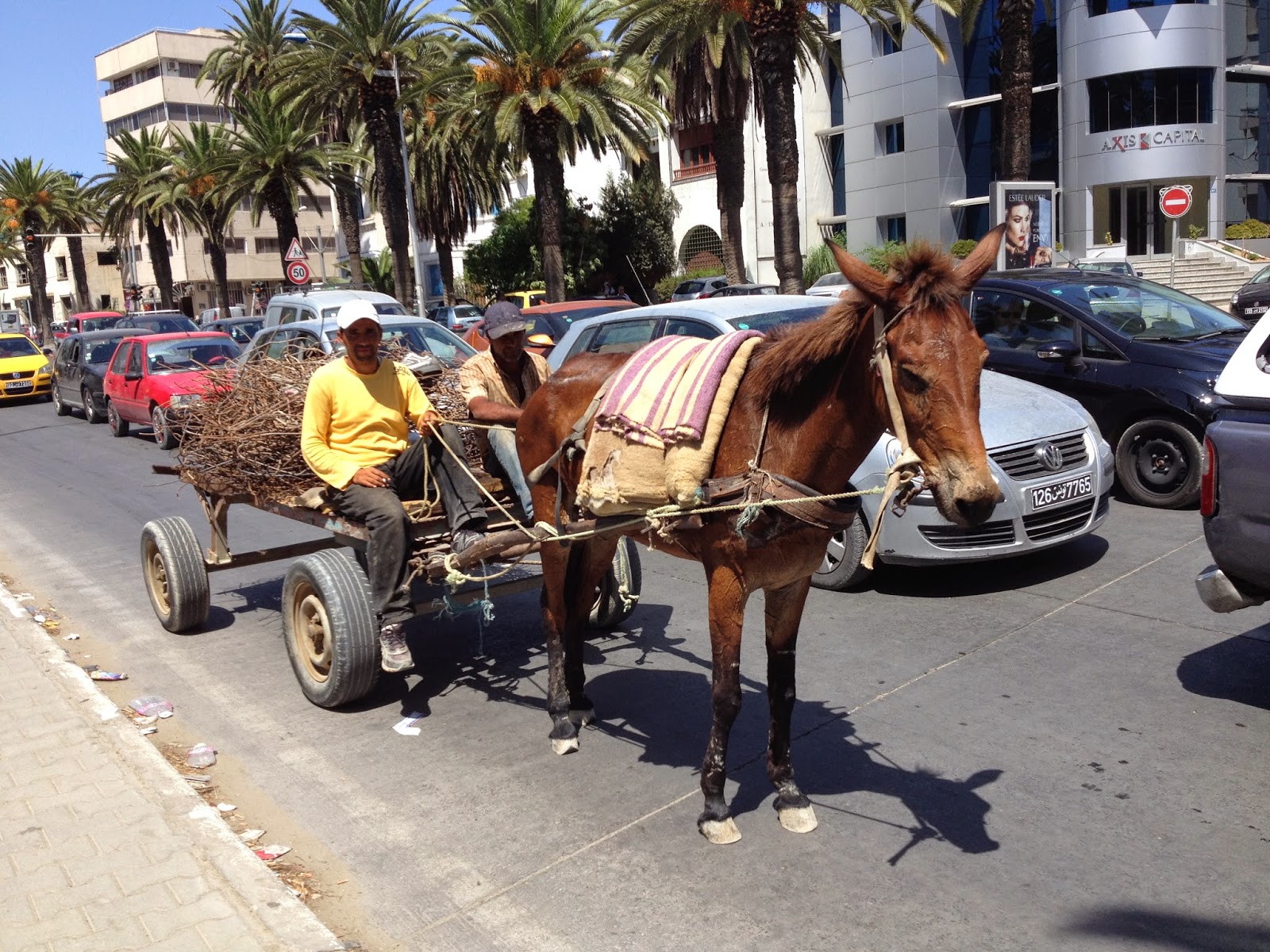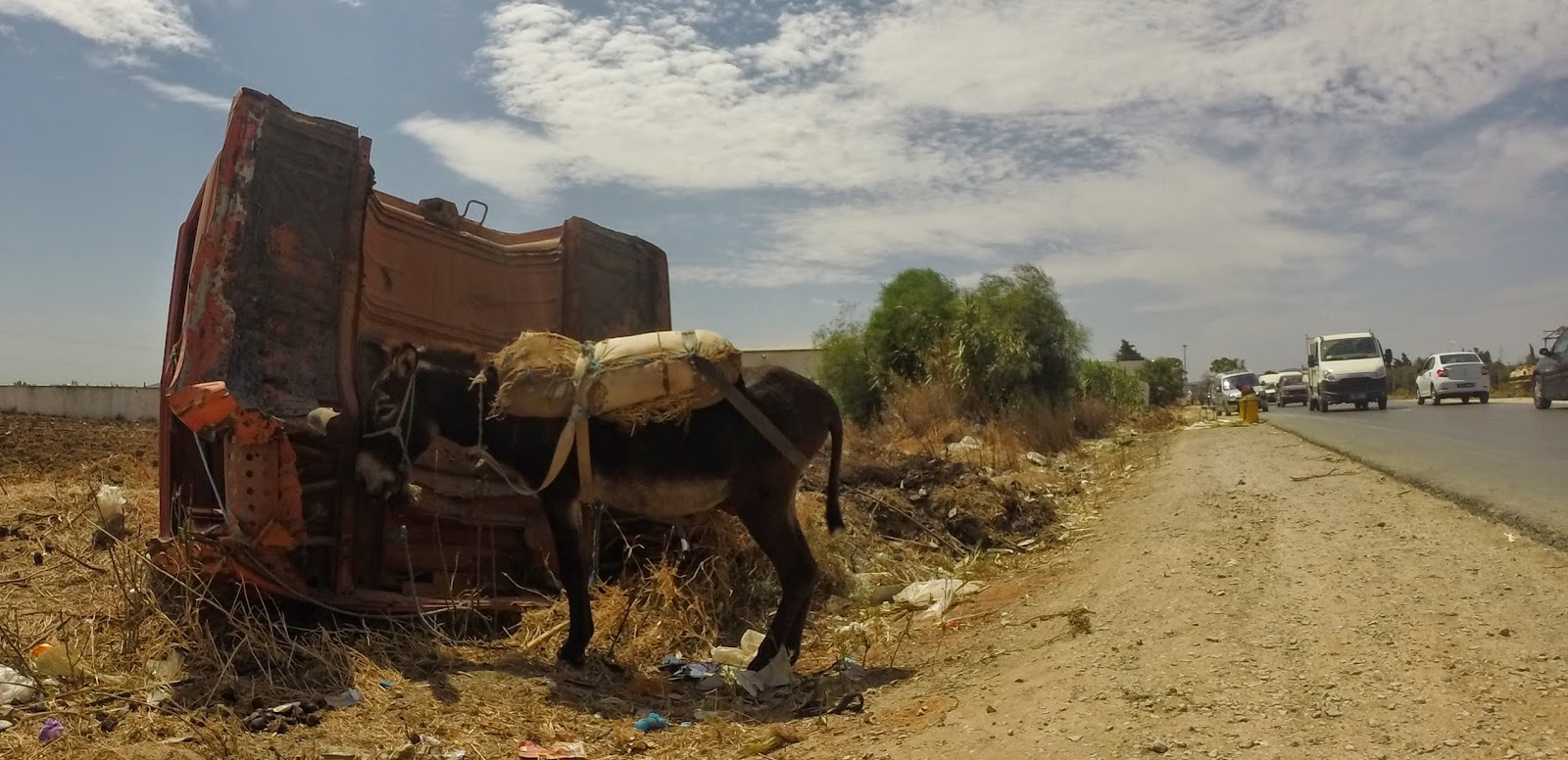Wednesday morning was very productive.
We drove to Soukra to Medivet Laboratories (http://www.medivet.com.tn), a veterinary pharmaceutical company, where Jaber has two colleagues. The first part of the meeting focused on speaking with Dr. Imen Hadj Ammour (veterinarian). She told us about the products Medivet manufactures and distributes. She also shared details about working with rural donkey owners because she has volunteered numerous times for Tunisian donkey welfare NGOs.
One of the common actvities at the NGO veterinary service events is administering anti-parasitics. We discussed challenges of deworming Tunisian donkeys - many live their whole lives without receiving anti-parasitics. Most owners do not have the resources to maintain a anti-parasitic program.
 |
| Ines, Imen, Tricia and Jaber |
 |
| One example of oral paste for internal anti-parastic treatment of donkeys |
|
She feels the Tunisian donkeys experience a constant exposure to parasite eggs and as soon as they are dewormed, they are reinfected in high numbers. One time purge deworming may not only be ineffective but can also be harmful. As veterinarians, we know a massive die-off of internal parasites can cause intestinal bleeding, obstructions, diarrhea and death. We agreed this is a concern when we appear with good intentions at a veterinary intervention and administer dewormer to the rural donkeys.
She also had stories to tell about how to convince owners to discontinue certain unhealthy and inhumane practices. Telling owners to stop old practices simply for the health of the donkeys, or for humane or religious reasons may not result in adoption of new behaviors. To elicit a change in human behavior, she has found that tapping into people's fear of being sick is one way to convince them to change. If their donkey is sick, they might get sick from contact or from eating the meat of the diseased animal.
Another tactic to elicit change is with gifts. This worked well to address the practice of the owners deliberately cutting grooves in the animal's body for the harness to embed into. The owners of donkeys without body wounds received gifts such as halters, but the owners of donkeys with wounds did not get the gift. They knew if they arrived at the next event without the injured donkeys, they would then get the gift.
She explained Tunisia has about 1400 veterinarians and perhaps only 3
or 4 perform dental procedures on horses. If we identify a high
prevalence dental disorders and oral lesions in donkeys, this may be a very welcome area for training and service.
Imen said Medivet would donate products for our activities, and we are very appreciative of this offer. Thank you!
The second half of the morning, we met with Dr. Ines Ben Jbara, who also works for Medivet and is looking to expand the product line of Medivet. In addition to her work, she is actively involved in the International Veterinary Student Association (http://www.ivsa.org/). This organization, founded in 1951, brings veterinary students together to "benefit the animals and people of the world by harnessing the potential
and dedication of veterinary students to promote the international
application of veterinary skills, education and knowledge". Ines said the students are eager to learn, network, and have
opportunities for activities. One of the active committees is animal welfare and the current chairman is Tunisian. We will pursue establishing a relationship with IVSA Tunisia as an avenue to link our efforts for the donkeys with students. You can check out their activities on facebook (https://www.facebook.com/IVSATunisia and https://www.facebook.com/ivsapage).

On an aside, we saw several blacksmith shops on the main road to Soukra close to Medivet. No time to stop today, but we want to talk to local craftsman about tool design before we leave Tunisia.

















































